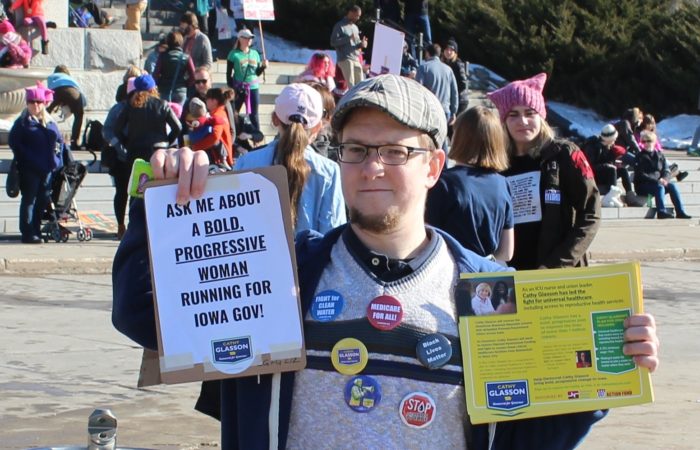Poweshiek County Soil and Water Commissioner and farm manager John Clayton explains why he is “all in for Cathy as governor.” Bleeding Heartland welcomes guest commentaries advocating for Iowa Democratic candidates in competitive primaries. -promoted by desmoinesdem
The Iowa legislature refused even to debate about confined animal feeding operations (CAFOs) during this year’s session.
Objections are dismissed by saying the countryside is for agriculture, it has always been like that. However, the premise of that argument is flawed.
The rural countryside has always been populated by agricultural working families. Yes, dove tailed with agriculture activity, farm families live amidst it all in harmony. Animals are born, reared, and fed on one’s own farm. That is alright with us.
What happens when a mega hog animal factory locates near your farm home? Your house value drops dramatically. Your outside environment is sickened by flies and strong odor.
Plus, the new neighbor does not come with the familiar wave above the steering wheel as you pass on the road. No grandkids will show up to visit your CAFO neighbor. Your neighboring factory will have no school children loading on and off the school bus, as all of us born and raised in the country remember experiencing. That is a hog mega factory building. The factory employees commute in to the animal factory.
Cathy Glasson advocates a moratorium on new CAFOs being constructed until we can get down to only 100 Iowa streams being dirty and polluted. For all of the above reasons and the water quality argument, I am all in for Cathy as governor.
John Clayton is a Grinnell resident, Democratic activist, member of Iowa Citizens for Community Improvement, Poweshiek County Soil and Water Commissioner, and farm manager. He took the photo at the top of this post, and Matt (the organizer for Cathy Glasson’s campaign) gave permission for its publication.


1 Comment
CAFOs
CAFO proponents keep arguing that CAFOs are a form of good family farming because CAFOs allow farmers’ adult children, who often can’t afford to buy or rent land, to come home and get started in farming by putting up hog buildings. But I really don’t care if CAFO buildings are operated by Auntie Em and Uncle Henry or by Dorothy and Toto. The issue is externalization of costs, and how the Iowa CAFO industry makes money by forcing rural Iowans and Iowa’s environment to pay the heavy price.
PrairieFan Tue 22 May 11:32 PM